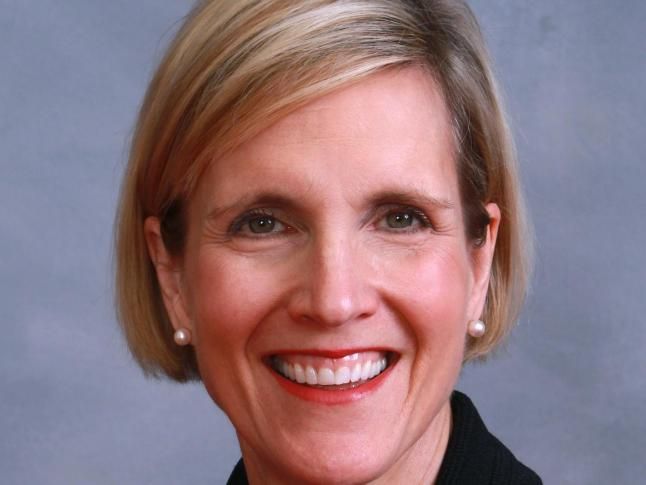Political caucuses keeps fundraising into session

If there was any doubt the 2014 campaign is already well under way, a fundraising email from the House Republican Caucus disabused political insiders of that notion this week. Signed by Ruth Samuelson, R-Mecklenburg, the House Republican Conference Leader, the email thanks supporters for their help in the past and asks them to help pitch in to retain the Republican majority. From the email:
There’s much more work to be done. We must continue to stand together to put North Carolina on a path of prosperity with more jobs, smaller government, less spending, fewer taxes, and a higher quality education for our next generation. The Democrats will be focusing their efforts on breaking our super-majority - something the people of North Carolina cannot afford. We must start today to ensure our work at the Legislature is not reversed by the Democrats in November 2014.
Please stand with us by making a contribution of $25, $50, $75, $100, $250, $500, $1,000, $2,500 or $4,000. This upcoming election will be tough. That’s why we can’t do this without your early support.
"Fundraising is a constant thing," said Matt Bales, a Republican party staffer who handles political work for the caucus. "We're taking a page from President Obama's playbook."
The president and other national leaders do send a steady stream of emails throughout the year asking for donations either to their campaigns or to larger political organizations. That practice had been more rare in North Carolina until recently. As the state has become more politically competitive in presidential campaigns and momentum has swung from Democrats to Republicans in state races, the Old North State is now a battleground state.
"What Rep. Samuelson is doing is something that has been done in the past and is legal, but it's a little unusual to see it right in the first week of session," said Bob Phillips, director of the North Carolina branch of Common Cause, a good-government watchdog. Democratic groups connected to lawmakers have raised money during session as well as Republicans.
But in the past, Phillips said, there was typically a pause in the fundraising cycle as the legislative session started.
Individual lawmakers are not allowed to take money from lobbyists at any time. And during the session, they are not allowed to take money from others who meet certain criteria, such as Political Action Committees that have lobbyists active before the legislature.
Those restrictions don't apply to caucus committees – political organizations overseen by state parties but run by legislative leaders.
Samuelson did not immediately respond to a phone call seeking comment.
Her email came to WRAL News from several lobbyists, who said that they are seeing a heightened level of fundraising pitches, particularly from the House GOP. Those lobbyists would not speak on the record due to the need to maintain professional relationships with lawmakers.
Phillips said that fundraising pitches such as Samuelson's "contributes to a perception that the people who will give are either wanting something or potentially getting something."
That perception is fed through events such as pre-session fundraisers that are popular with both parties. They take place immediately before the legislative session begins and bring with it new restrictions on giving. The pre-session fundraiser thrown by House Republicans raked in some $100,000 this year.
Republicans control both the House and Senate by wide margins.
UPDATE: After this post first went live, WRAL obtained a fundraising e-mail from the Senate Democratic Caucus, signed by Sen. Josh Stein, D-Wake. That e-mail read in part:
North Carolina, under Republican leadership, is set to deny the expansion of Medicaid even though the federal government is providing the money using funds paid by North Carolina taxpayers. The Republicans in Raleigh have become so blinded by their opposition to President Obama that they are turning away our own tax dollars, forgoing $1.5 billion in growth to our state GDP each year while forcing hundreds of thousands of our neighbors to go without adequate health insurance.
I am proud to report that every single Democrat in the state senate voted against this partisan political measure. We need your help to continue the fight against the Tea Party extremists. Please make a donation the North Carolina Senate Democratic Caucus so that we can build toward regaining control of the state senate.
"I'm not opposed to parties raising money," said Bob Hall, director of Democracy North Carolina, a good-government watchdog that focuses on campaign finance work. "I'd rather them raise it through a transparent vehicle like this than through a (c)4," Hall said, referring to 501(c)4 nonprofit groups. Political organizations have started using such nonprofits to raise big money and unlike a political committee do not have to report their donors. "Those are dangerous," Hall said.
The question the Republican fundraising email does raise, Hall said, is one of disclosure.
"It does highlight the fact that we're not going to get a fundraising report about this until July," he said.
Faster disclosure, he said, would allow the public to know whether big dollar donations were coming in close to a crucial vote or whether the fundraising email merely kept the base engaged.
Issues including tax reform, unemployment insurance changes, sweepstakes and gun regulations could provoke a spurt of donations as key votes approach. But the public will likely only know about any such donations just after the legislative session closes and the votes are recorded.
Asked about the potential of pay-to-play politics entering into the equation, Bales noted, that as Republican Conference leader, it was Samuelson's job to raise money and prepare for the next election. Her email, he said, is merely part of a broader modern political reality.
"We will continue to promote the positive work our members are doing. In order to get our message out, it takes money," he said. "We sent this email out to our supporter base. There's no remote chance that this should be construed as pay-to-play," Bales said.









